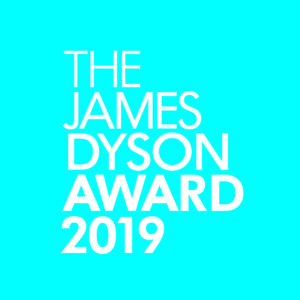The James Dyson Award is an international student design award running in 26 countries. It is run by the James Dyson Foundation, James Dyson’s charitable trust, as part of its mission to encourage the next generation of design engineers to be creative, challenge and invent. The aim of the award is to support current and recent graduates of design or engineering who have a problem-solving idea.
Who can apply
The award is open to current university students of engineering, product design and industrial design, and those who have graduated in these subjects in the last four years.
All entrants must have undertaken their studies in one of the following countries: Australia, Austria, Belgium, Canada, China, France, Germany, Hong Kong, Ireland, India, Italy, Japan, Malaysia, Mexico, the Netherlands, New Zealand, the Philippines, Russia, Singapore, South Korea, Spain, Switzerland, Taiwan, the United Arab Emirates the United Kingdom and the United States.
Teams are also encouraged to enter, provided at least the team leader must have studied one of the qualifying subjects, and all team members must be (or have been within the last four years) enrolled for at least one semester in an undergraduate or graduate programme.
Team entries are restricted to a maximum of 10 members.
Prizes
International Winner
– €33,500 for the winning individual or team;
– €5,500 for the institution where the winner studies or previously studied; and
– a James Dyson Award Certificate.
International Runners-up:
– €5,500 to the entrant (or as applicable the team); and
– a James Dyson Award Certificate.
National Winners from each Eligible Country:
– €2,200 to the entrant (or as applicable the team); and
– a James Dyson Award Certificate
Application
Applicants need to need to register and upload proof that they’re students or recent graduates in one of the qualifying subjects.
Once registered, they need to complete the online form explaining:
- What their invention does
- Where they got their inspiration
- How it works
- How they developed their design
- What sets it apart
- What the future holds for it
They need to submit the entry in English. If they wish, they can also submit a copy in one of several other languages.
They can upload up to five images, of up to 3MB each, to support their entry, including one feature image. They could also include a video, it often helps to explain an idea or project.
Videos should be less than 3 minutes long and show both the development process of the design and the prototype in action. Videos need to be uploaded to YouTube or Vimeo first.
Deadline: 11th July 2019, 11.59 EST.
More information
Check other ideas and previous winning projects to inspire you!







Leave a Reply